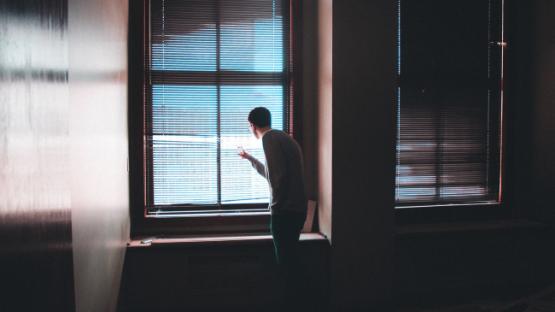
Photo by Cody Doherty on Unsplash
Those in a vulnerable situation - including human rights defenders - are not necessarily in a safer position during lockdown or quarantine measures due to greater exposure to the threats they are already facing, or due to their own activities.

Photo by Cody Doherty on Unsplash
Lockdowns and quarantines are an extraordinary measure that help in slowing down the global COVID-19 pandemic, and protecting the population.
However, they come at an even higher cost to some individuals, such as victims of domestic violence, persons in a vulnerable situation, and human rights defenders, who face specific threats that are exacerbated by measures taken by governments to address the global pandemic.
In that context, states should adopt special measures to keep those people protected and safe.
For those in a vulnerable situation, staying at home doesn’t translate into being safer, but the opposite, due to more (and sometimes forced) proximity with the source of the threats, or because staying at home helps repressive government bodies to better target them.
The dangers posed by the lockdown for (mostly) women experiencing domestic abuse have become increasingly clear, with violent incidents rising worldwide. Within this context, domestic abuse includes being subject to coercive control and loss of autonomy in different forms, such as supervising someone’s online activity and other forms of surveillance.
Undocumented migrants similarly find themselves in a vulnerable situation. In the USA, the Immigration and Customs Enforcement (ICE) was raiding migrant communities in Los Angeles on the first day of the California Covid-19 lockdown and elsewhere in the US after launching an aggressive surveillance strategy in early March.
Activists and human rights defenders are also facing increased threats, either as a product of doing their work, or because staying at home all day is exposing them to more state and criminal activity.
Journalists in Niger and Venezuela sounding the alarm in relation to unreported Covid-19 infections have been imprisoned. In other, more perverse cases, Covid-19 has been used as a justification to crack down on human rights defenders. Several activists were imprisoned after taking part in an authorised protest in Niger on 15 March in order to prevent the spread of coronavirus. A report released by NGO Tournons La Page revealed that protests had been routinely banned by the Nigerien government for years on terrorism grounds. Covid-19 was only their latest excuse.
In Colombia - according to the UN the most lethal Latin American country for human rights defenders - the assassination of human rights defenders has continued unabated despite the global pandemic. Between 19 and 24 March, six human rights defenders were murdered. Two of them, indigenous leaders Omar and Ernesto Guasiruma Nacabera, were murdered only meters away from their homes after being lured out under false pretences.
The Colombian Protection Unit had earlier issued a communiqué stating that it was compulsory for individuals under protection programmes and their security details to respect social distancing measures. This has resulted in human rights defenders being left unprotected at home.
The UN has recently stated that measures taken to address the COVID-19 crisis must ensure that all human rights are addressed, and all vulnerable groups must receive support from governments.
Indeed States have a negative obligation not to breach their citizens’ rights, as well as a positive obligation to ensure that their rights are protected - even in a time of crisis. States must therefore adopt measures to protect the targeted, who find themselves at greater risk in a lockdown situation.
In light of these increased threats for vulnerable people and targeted human rights defenders and journalists, States should:
Those who suspect they are currently being targeted are also advised to adopt consistent security measures to protect the integrity of their devices and communications, with special care on their location data, which might be misused by Governments or private actors.
A handy resources for people to increase their security in the context of their risk environment is Security Planner, from the Citizen Lab.
During their confinement, people should beware of phishing attacks, in the form of fake emails or SMS pretending to contain valuable information about the virus or coming from someone else, and from installing software from unknown or unreliable sources.
If someone is not sure about whether someone actually sent them an email, they should contact the sender through another channel to confirm that the email is legitimate. The Electronic Frontier Foundation published a guide to recognise phishing scams related to the COVID-19.
For those who are in touch with people that might be targeted:
If you are in touch with people that might be targeted, you should go to extra lengths to protect the identity and location of those who are in contact with you, particularly refraining from publishing online any information that might lead to their identity and specially their location being disclosed or inferred, including screenshots of chats or videoconference sessions.
If possible, before setting up a communications channel, assess which risks that platform might create for targeted people, and research best practices and features of those platforms to enhance their security levels.
Finally, beware of inadvertently leaking personal data through other means, such as screen (or screenshot) sharing during a conference or recording, which might contain sensitive information, including personal messages, location data, or platform identifiers which might pave the way for further attacks.